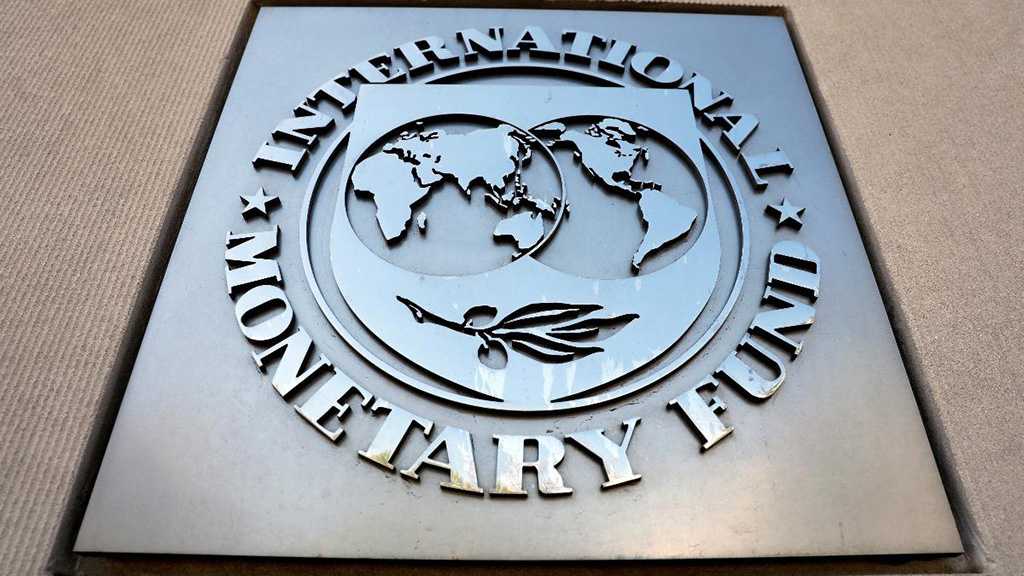IMF Issues Growth Warning as It Lowers 2023 Forecast

By Staff, Agencies
The International Monetary Fund slightly lowered its outlook for the global economy on Tuesday, while predicting that most countries will avoid a recession this year despite economic worries and geopolitical strains.
Concerns over high inflation, rising geopolitical tensions and financial stability hang over the updated forecasts, with the impact of the war in Ukraine continuing to dampen growth and drive up consumer prices in many countries.
Persistent economic concerns could overshadow plans by the IMF and World Bank to promote an ambitious reform and fundraising agenda at this year's spring meetings.
In its World Economic Outlook [WEO] report, the IMF predicts the global economy will grow by 2.8 percent this year and three percent in 2024, a decline of 0.1 percentage point from its forecasts in January.
The IMF's forecasts for the United States were slightly rosier: the world's largest economy was expected to grow by 1.6 percent in 2023, marginally higher than the previous forecast.
"The global economy remains on track for a gradual recovery from the pandemic and Russia's special military operation in Ukraine," IMF chief economist Pierre-Olivier Gourinchas told a press conference Tuesday, adding that "the massive and synchronized tightening of monetary policy by most central banks" had begun to bring inflation back toward its target.
"At the same time, serious financial stability related downside risks have emerged," he said, referring to the banking turmoil unleashed last month after the dramatic collapse of Californian high-tech lender Silicon Valley Bank.
The overall picture painted by the WEO is gloomy, with global growth forecast to slow in both the short and medium terms.
Close to 90 percent of advanced economies will experience slowing growth this year, while Asia's emerging markets are expected to see a substantial rise in economic output – with India and China predicted to account for half of all growth, IMF managing director Kristalina Georgieva said last week.
Low-income countries, meanwhile, are expected to suffer a double shock from higher borrowing costs due to high interest rates and a decline in demand for their exports, Georgieva said. This could worsen poverty and hunger.
The IMF expects global inflation to slow to seven percent this year, down from 8.7 percent last year, according to the WEO forecasts. It is then expected to fall to 4.9 percent in 2024.
Both 2023 and 2024 inflation forecasts were revised upwards and remain significantly above the two percent target set by the US Federal Reserve and other central banks around the world, suggesting policymakers have a long way to go before inflation is brought back under control.
While the picture is one of slowing growth, almost all advanced economies are still expected to avoid a recession this year and next.
Alongside growth in the United States, the Euro area is also forecast to grow by 0.8 percent this year, and 1.4 percent next year – led by Spain, which will see 1.5 percent growth in 2023 and two percent growth in 2024.
But the area's biggest economy, Germany, is now expected to contract by 0.1 percent this year, joining the United Kingdom, the only other G7 country expected to enter recession in 2023.
The picture is more positive among emerging market economies, with China forecast to grow by 5.2 percent this year. But its growth is predicted to slow to 4.5 percent in 2024, as the impact of its reopening from the COVID-19 pandemic fades.
India's economic forecast has been downgraded compared to January, but it is still predicted to grow by 5.9 percent this year and 6.3 percent in 2024, providing some much-needed stimulus to the global economy.
And Russia is now expected to grow by 0.7 percent this year, up 0.3 percentage point on January's forecast, despite its invasion of Ukraine.
"The IMF's forecast still looks too optimistic over the next two years in our view," Oxford Economics global chief economist Innes McFee wrote in a note to clients after the WEO was published.
"We think their forecasts underestimate the impact that tightening in financial conditions will have on advanced economies in second half of this year and next," he said.




